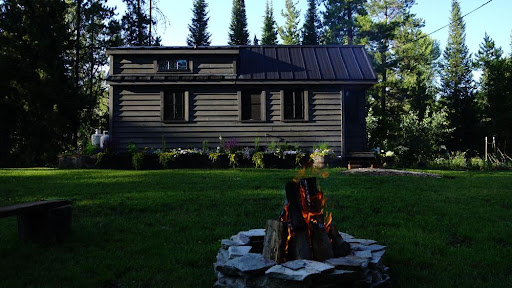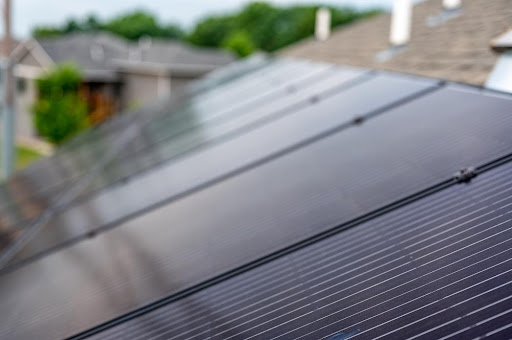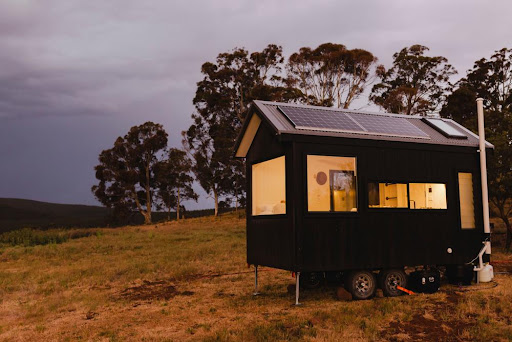Off-Grid or Grid-Tied — Which Is Right for You?

When switching to solar energy, you have the option to choose between a grid-tied, off-grid or hybrid solar power system.
Each has its advantages and disadvantages, and there’s no singular answer when deciding which is best. That option comes down to each household’s specific goals and unique needs.
For example, one goal may be to reduce monthly energy bills, and another may be to live completely off-grid and be 100 percent self-reliant.
Either way, taking some time to understand what your needs are will be the determining factor in selecting the perfect solar panel system.
But you may still be asking — are solar panels worth it?
Table of Contents
Overall Solar Energy Benefits
Before diving into the pros and cons of each type of system, it’s important to understand some key factors surrounding solar panels today.
In the past, these systems were stereotyped as unreliable and a luxury reserved for big corporations and the wealthy.
Fortunately, solar panel costs have dropped significantly in recent years. In fact, even with the supply chain issues in 2021, the overall costs still show a downward trend. This makes solar panels a competitive source of energy generation.
Additionally, many households have warmed to the idea of installing a solar kit. This is likely due to the combination of rising energy costs and high inflation.
Regardless, homeowners can guarantee monthly savings with reduced energy bills and ultimately recoup the initial costs over its lifetime use.

Grid-Tied Solar Systems
When you see the row of homes with large solar arrays attached to the rooftops, they likely use a solar panel grid-tie kit. The name describes this system perfectly. It’s a renewable solar energy system that connects to the electrical grid or the local power supply.
Grid-Tied Advantages
The main advantage of this system is flexibility. It allows owners to connect their system to a traditional power source in the event their panels don’t produce enough electricity. Grid-tied systems also come with a unique advantage called net metering. This is when any excess energy generated by the solar panels gets fed back to the grid.
The advantage for homeowners is that any electricity sent back, also turns back the meter. This allows homeowners to act as a microgenerator and feed the grid. Bluntly put, net metering turns the tables and allows homeowners to “sell” back excess energy at the same rate utility companies sell it for.
Additionally, grid-tied systems are cheaper than off-grid systems. They’re cheaper because they require less equipment, have reduced installation costs and increased efficiency rates. Unlike off-grid systems, batteries are optional. Oftentimes, people get surprised at how expensive a battery storage system can be. In many cases, it can easily cost beyond several thousands of dollars.
Grid-tied systems are best for those with limited space for battery storage or space on the roof to install a sufficient number of solar panels.
Grid-Tied Disadvantages
While these are excellent systems, they come with several disadvantages. First, for a grid-tied system to be truly cost-effective, it must be close to the power grid. Otherwise, the cost of extending lines can add up, making off-grid systems much more affordable. The general rule of thumb is if your home is more than 100 yards from the grid, it’s better to give up on a grid-tied system.
Additionally, they will shut off during any power outage. That’s to ensure utility workers’ safety while they fix the underlying problem. Turning off the grid also means excess solar energy isn’t sent back to shock a utility worker unexpectedly.

Off-Grid Solar Systems
Unlike the grid-tied model, an off-grid solar system is completely separate from the local power grid. These are perfect for those looking to power their home in a remote location or those looking to become 100 percent independent from their utility company.
However, they’re much more complex systems. These require additional components like solar batteries, inverters and battery storage systems.
Off-Grid Advantages
Off-grid kits are an economical option, especially if your home is already removed from the grid. As mentioned earlier, laying new lines for a remote location can quickly add up to a couple hundred thousand dollars. In this case, investing in an off-grid solar system can be much cheaper and result in a smaller carbon footprint.
The main advantage is that you’re entirely responsible for all the power you generate. That means as long as there’s enough electricity stored in the batteries, you’ll always have power in the event of a blackout. It also means you’ll never have to worry about the ever-increasing electricity rates for the foreseeable future.
However, all these advantages come at a cost.
Off-Grid Disadvantages
Being able to generate all your power means higher upfront costs. It’s not only the batteries that ramp up the total cost, but off-grid systems typically require more solar panels and even generators.
Off-grid systems are generally most effective in low-energy demand or net-zero homes. These are buildings that have other energy-efficient installations. That can include adequate insulation and a proper fitting roof. In an ideal world, homes fitted with off-grid systems will never have to worry about losing power. In reality, these systems require the owner to be energy-conscious and understand that there will be some periods without any power.
It’s to be expected that the batteries may fully drain with high energy usage or in times of reduced production. Fortunately, homeowners only have to wait a short period for their batteries to recharge. They can also take preventative measures and get a backup generator. However, that would defeat the purpose of being environmentally friendly.
Saving with Solar
There’s no blanket answer to which solar panel system is best. Whether you require a grid-tied or off-grid system, other factors still play a considerable role in your decision. These include the budget, roof size, shading issues, home orientation and distance to the grid, to name a few.
The best way to select the perfect system is to determine your unique requirements and to have a discussion with a few local solar installers. Either way, installing a solar panel system can provide significant benefits like lower energy bills and a reduced carbon footprint, regardless of the type.
